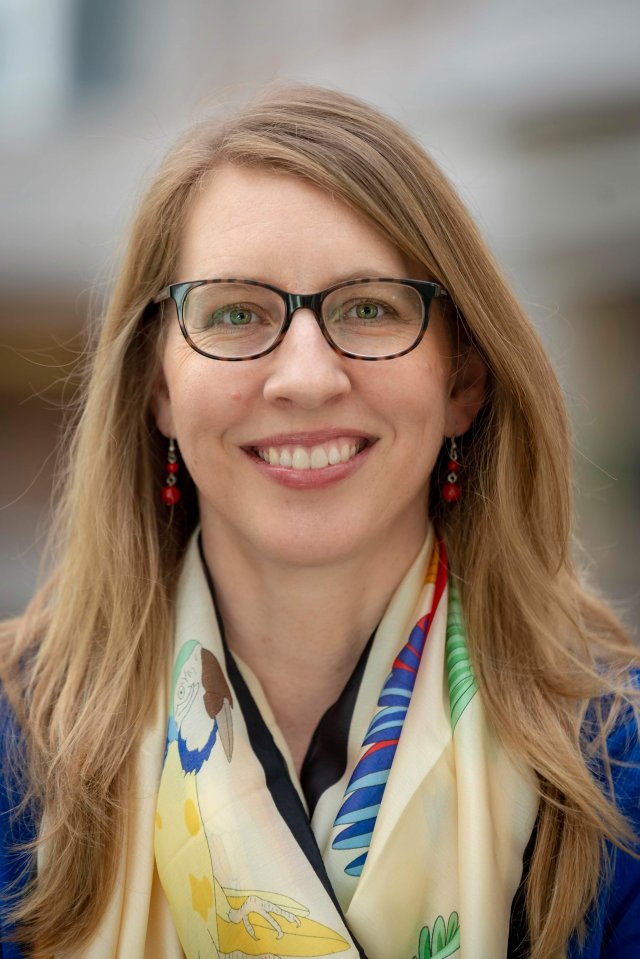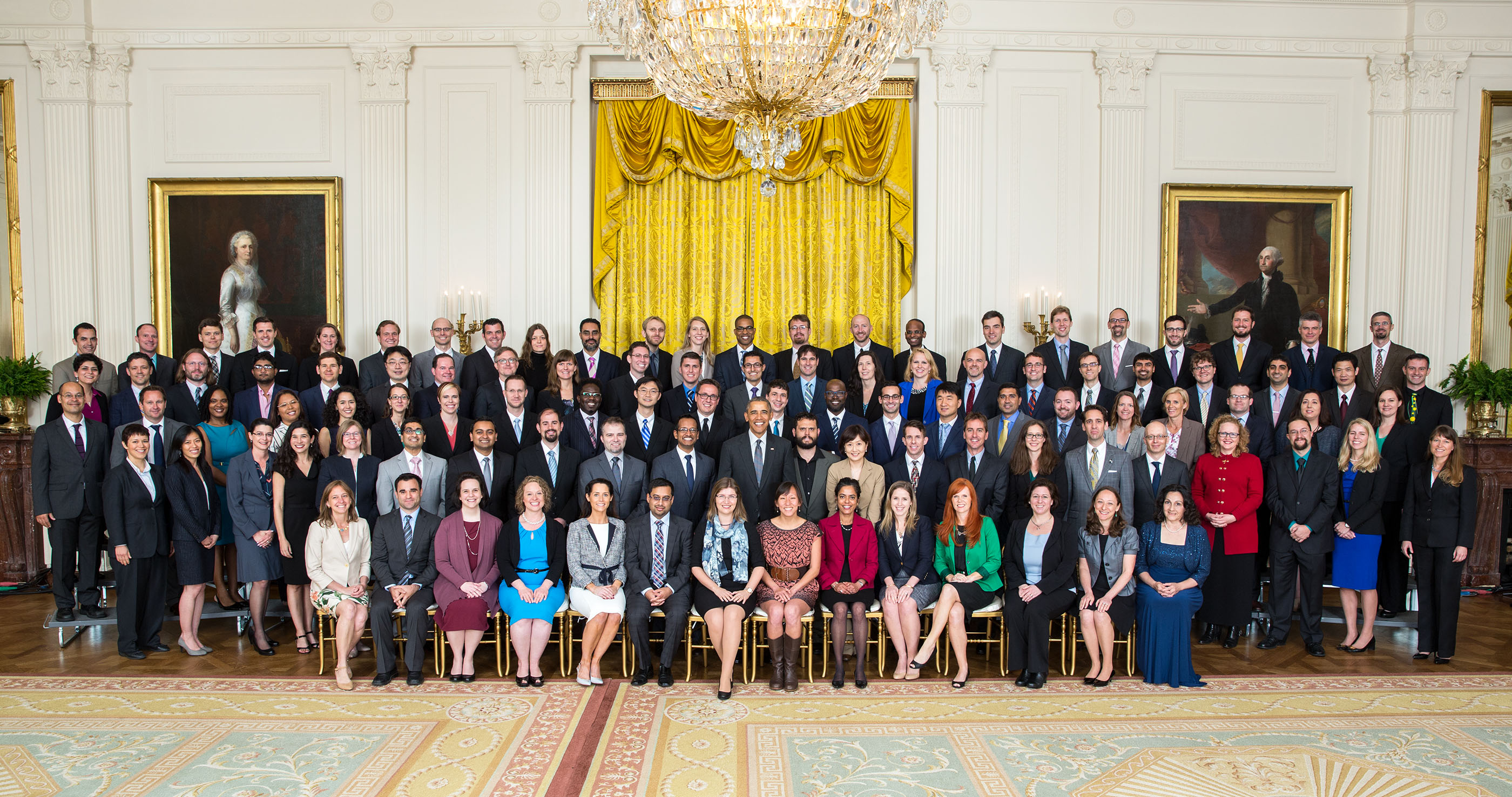Meet EPA Associate National Program Director for Air, Climate and Energy Dr. Rebecca Dodder
Dr. Rebecca Dodder received a 2018 Arthur S. Flemming Award for her innovative approach to evaluating current and emerging environmental challenges and opportunities related to energy production and use in the United States. She also received the Presidential Early Career Award for Scientists and Engineers in 2016.

Tell us about your background.
I majored in Physics and Spanish in at Vanderbilt University. Afterwards, I wanted to pursue a career that leveraged my scientific background, but also my interest in public policy. I completed an MA in Science, Technology, and Public Policy at The George Washington University, where I worked on issues ranging from space policy to R&D and economic development. I followed that with a PhD in Technology, Management, and Policy at MIT.
At MIT, I started off as a research assistant in the Nuclear Engineering department. A few weeks into the semester, funding for that project fell through and left me with no funding support. My dual major in Spanish was the key when a classmate told me about an air pollution research project focused on Mexico City. I started on that project working with Nobel Laureate Dr. Mario Molina at MIT. During my research, I traveled to and then lived in Mexico City for several years.
This program at MIT, the Integrated Program on Urban, Regional and Global Air Pollution, lead me into environmental protection, specifically transportation energy and the environment. I started as a federal postdoc with the EPA in Research Triangle Park, working in ORD’s energy system modeling team. In 2020, I moved into a supervisory role where I supported an amazing group of scientists and engineers on topics ranging from wildfire smoke to mobile source emissions. More recently, I stepped into the role of Associate National Program Director for Air, Climate and Energy, where my focus is on the climate work in the ACE portfolio.
I could not have planned my winding path that led me here, but I absolutely love it.
When did you first know you wanted to be a scientist?
In high school, I had a wonderful AP Physics teacher. As a women scientist, she was a supportive and encouraging mentor. I think that was probably one of the first times that I started to really gain confidence that I could excel in science. This confidence was key, especially as I was sometimes the only woman in my physics classes.
How does your science matter?
For a large portion of my time at EPA, I worked with a team focusing how the energy system can change over time—looking out 50+ years into the future. Using energy system models, one look at how different long-term energy scenarios may affect climate, air quality, water use, and other factors. In my new role, I look at a broader scope of climate research. But, I recently brought that energy systems perspective to support the 5th National Climate Assessment as an author for two chapters, the Mitigation and Overview chapters. For mitigation, a systems perspective really matters because we have to consider how this really complex system will change, but also the broader benefits (like reduced air pollution) from those changes.
What do you like most about your work?
In my new position I have taken on a broader role looking at all aspects of climate research, including impacts of climate but also our society’s responses to climate in the form of mitigation, adaptation, and resilience. I am constantly learning from the amazing work that we have in our EPA climate research portfolio and inspired by the passion and creativity of our researchers.
If you could have dinner with any scientist, past or present, who would it be? What would you ask him/her?
Marie Curie. I would love to hear her story of how she persisted as a woman pursing science in the late 1800s and turn of the century and would go on to be the first women to win a Noble Prize and the only person to win the Nobel Prize in two scientific fields.
If you weren’t a scientist, what would you be doing?
I can’t really imagine doing something that doesn’t involve some science. I would be outdoors somewhere, perhaps outdoor recreation or environmental education.
If you could have one superpower, what would it be and why?
“The Force.” Why? Star Wars.
Any advice for students considering a career in science?
My main advice would be for them to be open-minded and realize that it’s not always going to be a direct trajectory to exactly where they want to be, and they need to take advantage of opportunities and leverage other skills. For me, speaking Spanish helped open doors that changed my research and career trajectory.
What do you think the coolest scientific discovery was and why?
The detection of gravitational waves in 2015 was pretty cool. These “ripples in space” were two black holes colliding 1.3 billion years ago! The idea of long-standing ideas from theoretical physics being confirmed and detected through experimentation decades later is a testament to how science moves forward.
What do you think is our biggest scientific challenge in the next 20/50/100 years?
From my perspective on the energy side, our biggest challenge is how we start to manage some of the transitions we need to make to get to a more sustainable energy system. Understanding how we move there, not just on the technology side but also the societal side, is critical. It’s not so much a matter of delving in deep to a specific area or technology, but just understanding how you move the entire system forward.

Editor's Note: The opinions expressed herein are those of the researcher alone. EPA does not endorse the opinions or positions expressed.
